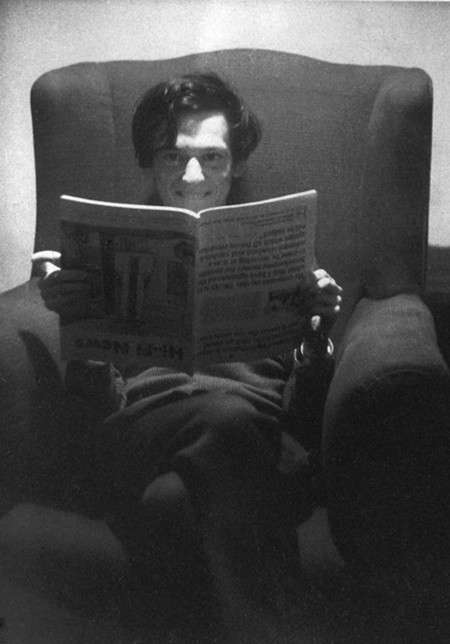Michael Gerzon
Настоящее имя: Michael Gerzon
Об исполнителе:
British audio engineer, mathematician, and high-fidelity pioneer (4 December 1945, Birmingham — 6 May 1996, Oxford). Michael Gerzon is known for numerous inventions, such as "noise-shaped dither" filtering, Meridian Lossless Packing codec, and Ambisonics surround sound technology. He became the Audio Engineering Society fellow in 1978 and received the AES Gold Metal in 1991. Gerzon published over 120 articles in academic journals and consumer magazines, including Hi-Fi News, Wireless World, Gramophone, and Rē Records Quarterly. As a dedicated field recordist, Michael Gerzon documented numerous sessions by the leading UK free improv/jazz musicians, from Anthony Braxton Quartet and Derek Bailey to Lol Coxhill. He engineered several notable albums, such as Evan Parker's '86 The Snake Decides LP or Live Improvisations by Fred Frith and Tim Hodgkinson, the sophomore release on Jason Willett's Megaphone Records. (The British Library National Sound Archive is digitizing Gerzon's comprehensive 400-hour archive of recordings.) In 1967, soon after earning his MMath degree from Oxford's Corpus Christi College, Gerzon joined the Oxford University Tape Recording Society (OUTRS). Together with his graduate student Peter Craven and University of Reading's professor Peter Fellgett, Michael designed a "Soundfield" microphone (SFM) — a custom array of four capsules on a tetrahedron-shaped frame that records substantially more signal. As a follow-up, Gerzon designed the "Ambisonic UHJ" format for encoding all the additional sound captured by Soundfield mics and decoding it for reproduction via conventional loudspeakers. Gerzon left Oxford in 1972, continuing his research under the National Research Development Corporation (NRCD). It was the "Quadraphnonics" era, with several 4-channel matrix decoding systems competing on the market, such as SQ Quadraphonics from CBS, Sansui's QS 'Regular Matrix' or CD-4/Quadradisc from JVC/RCA. Michael proposed Ambisonics in direct opposition to matrix-based 4-ch implementations as a superior "psychoacoustic" approach tailored to the human ear and the natural aural perception; he published a few articles in 1974 that openly criticized Quadraphonics and four-channel audio. In 1979, Gerzon demonstrated the latest prototype to Dolby Laboratories, Inc., which tried to license Ambisonics for Dolby Surround; the deal never happened due to NRDC's sluggish, bureaucracy-ridden management. In May 1984, Michael Gerzon presented a hardware "Ambisonic Mastering System" designed in collaboration with Geoffrey Barton from Audio & Design (Recording) Ltd. It streamlined the production of Ambisonic records by allowing to downmix any conventional two-channel multitrack masters to UHJ Ambisonic. In the early 1990s, Michael Gerzon worked with Waves Audio, an Israeli developer of VST and DSP plugins, developing such groundbreaking software as Q10 Equalizer or one of the first "prediction" limiters on the market, L1 Ultramaximizer. In 1992, Gerzon and Geoff Barton presented custom "2,2,3"-decoders designed to enhance two-channel stereo via three Left/Center/Right speakers. Subsequently, Barton patented the invention as "Trifiled" and licensed it to a few companies, most notably Meridian Audio. Gerzon also worked directly with one of Meridian's founders, a renowned British audio pioneer J. Robert "Bob" Stuart, on a multi-channel PCM audio compression. Presented in June 1999, three years after Gerzon's death, MLP (Meridian Lossless Packing) became the default compression method for DVD-Audio and later Blu-ray (as Dolby TrueHD).






